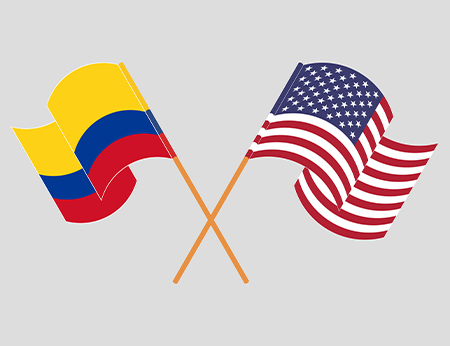 Life between two cultures complicates things but also expands our horizon and makes us well-rounded people once we learn how to navigate the two.
Life between two cultures complicates things but also expands our horizon and makes us well-rounded people once we learn how to navigate the two.
Personal therapy places emphasis on multicultural adaptation, which is a must for many of us.
Many multicultural individuals are in limbo while navigating the expectations of two or more cultures daily. Our family and parents expect certain behavior from us, but the mainstream culture where we grew up wants us to behave differently.
To be more exact, many cultures of origin are collectivistic, which means that we need to focus on the collective well-being of the family or group. The main way to survive is by working as a group to achieve progress. The unity and cohesiveness of the team is the main strength.
The mainstream culture is mainly individualistic, conveying that self-focus and achievement of personal goals are a must and lead to personal happiness. It teaches that interdependence with our support system is necessary, but the well-being of this support system is not our responsibility. Each person pulls their weight and finds themselves for self-actualization.
Both collectivistic and individualistic systems are essential to us and are great when performed at their best. However, being an immigrant/multicultural person in the middle of the two systems creates complications, stress, and confusion.
Therapy helps you find your identity.
In therapy, we begin to look at the values and beliefs of each culture and begin to highlight what our values and beliefs are. Then, you can start to decide which of those values, beliefs, and traditions of each culture you want to make your own. You begin to determine which rules and expectations you want to abide by and incorporate into your life.
Sometimes, your life might call for you to be somewhat individualistic, and at other times, you may need to take a more collectivistic approach. Having a good understanding of where you stand concerning both cultures and the type of foundation you’ve built will give you the power to decide what aspects of each culture you want to embrace.
Many beliefs, values, and behavioral patterns can be unconscious. By naming them in therapy and analyzing how you relate to others and act in the world, you will better understand who you are.
Sorting out those beliefs helps you build a solid identity and helps you find your voice.

Learn to bridge the gap between cultures.
Having an individual focus in a collectivistic system can appear “selfish” and “self-centered” to our family. What is truly happening is that we are trying to survive between two cultures.
If we learn how to take care of ourselves and truly understand where we stand, we can start to develop our beliefs and values and be in tune with our needs and wants. Consequently, we can show up for our collectivistic family members and friends, making us more comfortable and intentional when we take care of them.
Clearly articulating our expectations allows us to find areas where those expectations align with our family’s expectations.
 Creating quality in our lives is the goal.
Creating quality in our lives is the goal.
Our goal in therapy is to take a multicultural adaptation approach to increase your quality of life, the quality of your relationships, and your internal understanding, happiness, and peace. These adaptations will lead you to take care of yourself and strive to accomplish your goals without feeling guilty or bad, allowing you to remove the self-narrative of being “selfish.”
By going to therapy, you will proactively work as you plan and come to terms with how you show up for your family and yourself. You can now start to communicate your needs and wants with your family and what they need and want from you. Such open communication keeps you from becoming overwhelmed and helps you avoid giving away those parts of yourself that sustain you.
As you find your identity and bridge the gap, you can define your boundaries with your family and friends regarding what you can and cannot give to them. This open communication will lead to more cohesive and harmonious relational dynamics.
You are the ultimate person who must permit yourself to be your authentic self! And I am here to walk alongside you on your journey and help you become the best version of yourself!
